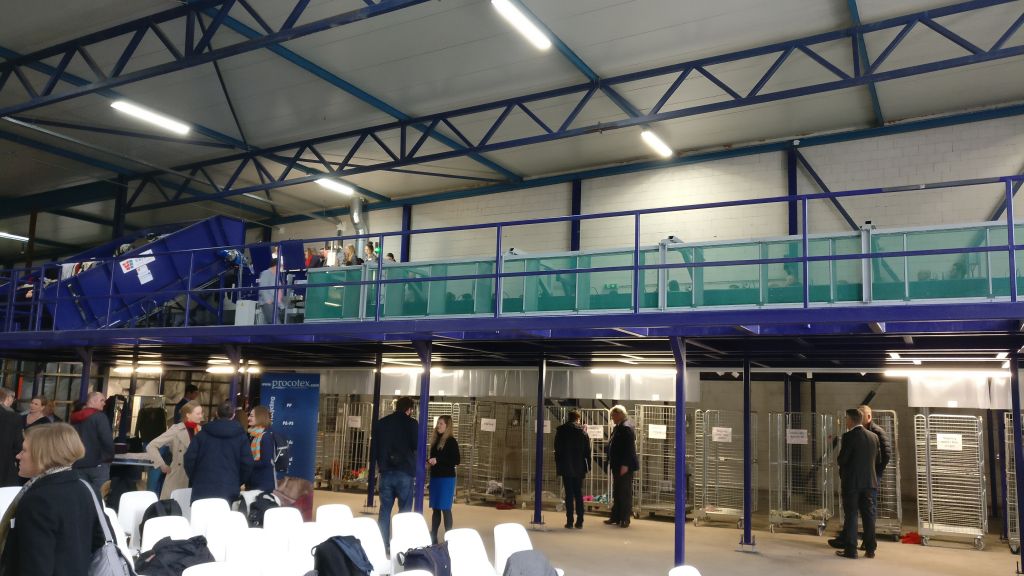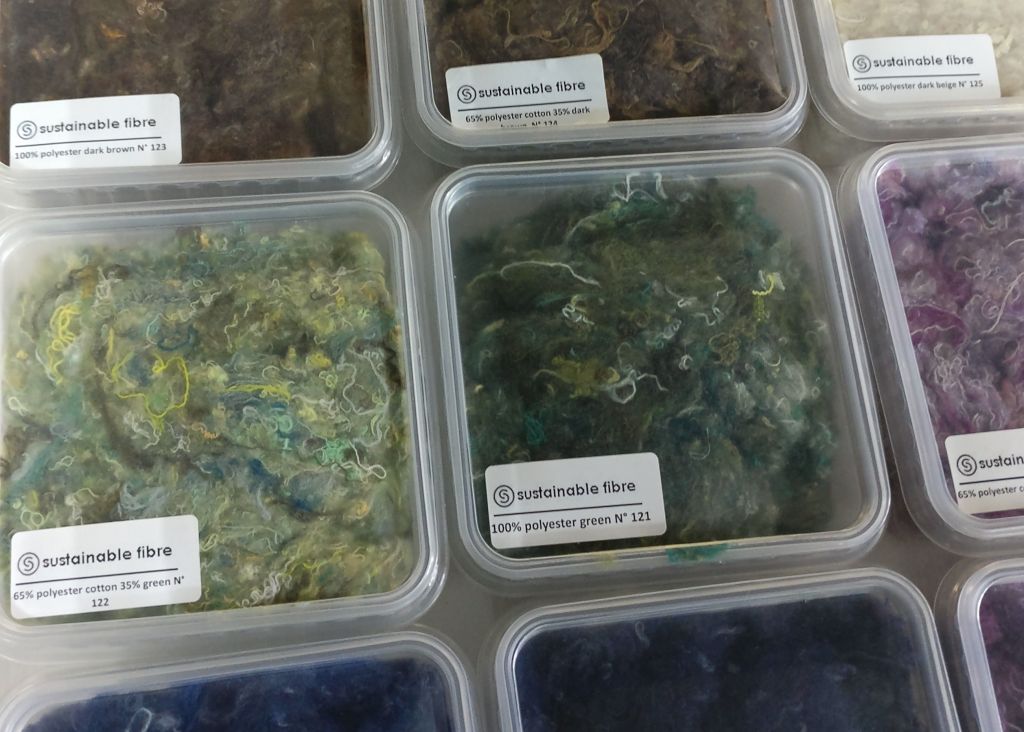Textile identification technology on an industrial scale

Participants from Lahti University of Applied Sciences travelled to the Fibersort Demo Day organized by the Belgian Valvan Baling Systems1 and the Dutch Circle Economy2 community in Amsterdam on 14 March 2018. The event included discussing stakeholder views on the current status and future prospects of textile recycling and brainstorming on technology and product design in workshops. In addition, new textile identification technology, developed in the Fibersort project and designed to sort textiles according to fibre types with the use of NIR spectroscopy, was presented in the event. Valvan Baling Systems has 50 years of experience in the material processing systems of the fibre industry and has developed semi-automated sorting mechanisms for used textiles for more than two decades. The Fibersort technology is the company’s first automatic sorting system based on IR optical identification.

The Fibersort system is trained to identify 14 different types of textile, including pure cotton, polyester, wool and acrylic as well as mixtures of these. The system is able to sort about 1,200 kg of textile waste in one hour and requires two full-time operators for material input and handling. Fibersort accepts presorted textile waste after any saleable clothes, items containing structures of multiple fabrics, dirty and wet textiles as well as non-sortable materials, such as shoes, have been removed. Of all the input flow of textiles (the remaining 25%), the system is able to identify 40% for refinement. Valvan Baling Systems is actively developing the input automatics of the system and the share of collected textile types. Machine vision sensors can easily be integrated with the Fibersort system to sort by colour, for example. The largest client and cooperating partner of the project is Procotex4, a fibre recycling company.

In connection with the event, a number of problems in the sustainability of the current state of the textiles market stirred some discussion. The free returns policy of online fashion shops, for example, has considerably increased the amount of textile waste as processing and reselling returns is seldom profitable. In addition, increasingly complex mixes of fibres in textiles hinder both material identification and processing into new products. In terms of more efficient marking and itemising methods of textiles, RFID tags and printable bar codes are currently topical in the textile recycling industry, but Valvan, for example, does not consider it a priority when it comes to development projects. Despite of easy, efficient and existing identification technology, tag-based identification cannot be considered more reliable than care labels, and extensive deployment of chips would require a considerable amount of regulation and control. Means based on taxation or manufacturer’s responsibility and designed to support the recycling industry as well as financial incentives to utilize recycled fabrics are considered more effective as factors to increase resource efficiency.
The Circle Economy community and the Fibersort project are searching for new partners to promote the commercialization of the sorting system and, thus, the availability and market share of recycled fibres. In addition to technological development, the objective is to create documentation on, among other things, the needs of the market, the restrictions set by regulations, the quality requirements of materials, potential business models and the European network of textiles recycling. For more information on the project and cooperation opportunities, visit the project’s website3 and contact the Project Manager: Traci Kinden, traci@circle-economy.com.
2 https://www.circle-economy.com/
4 http://en.procotex.com/index.php
Text and images:
Jaakko Zitting
RDI Project Planner
Lahti University of Applied Sciences
